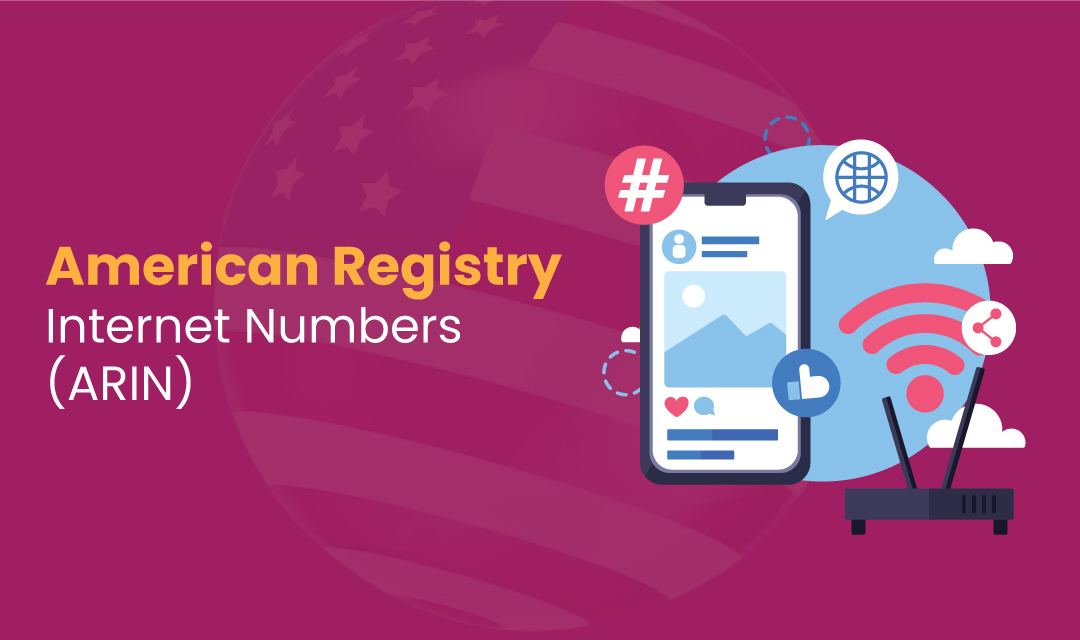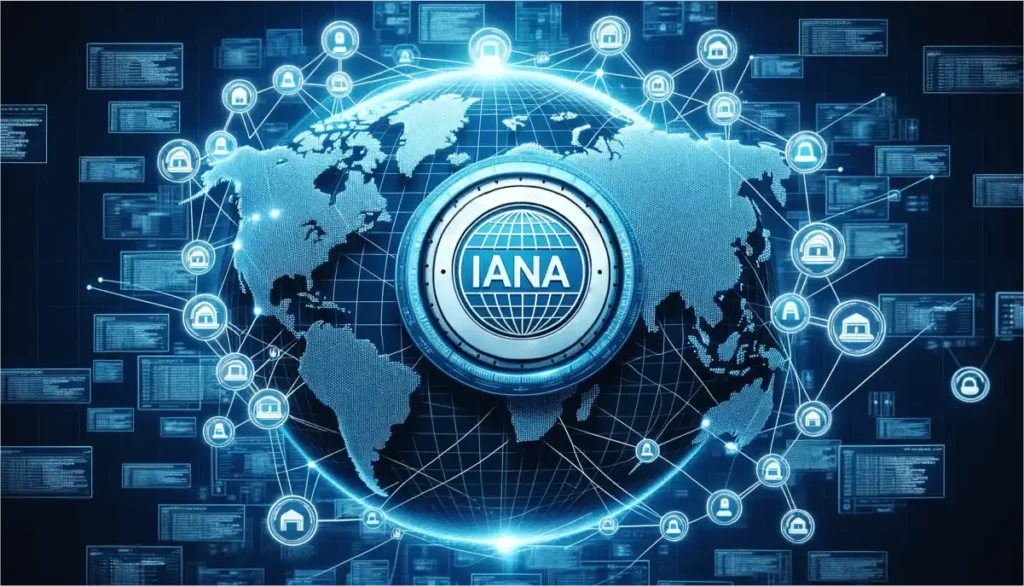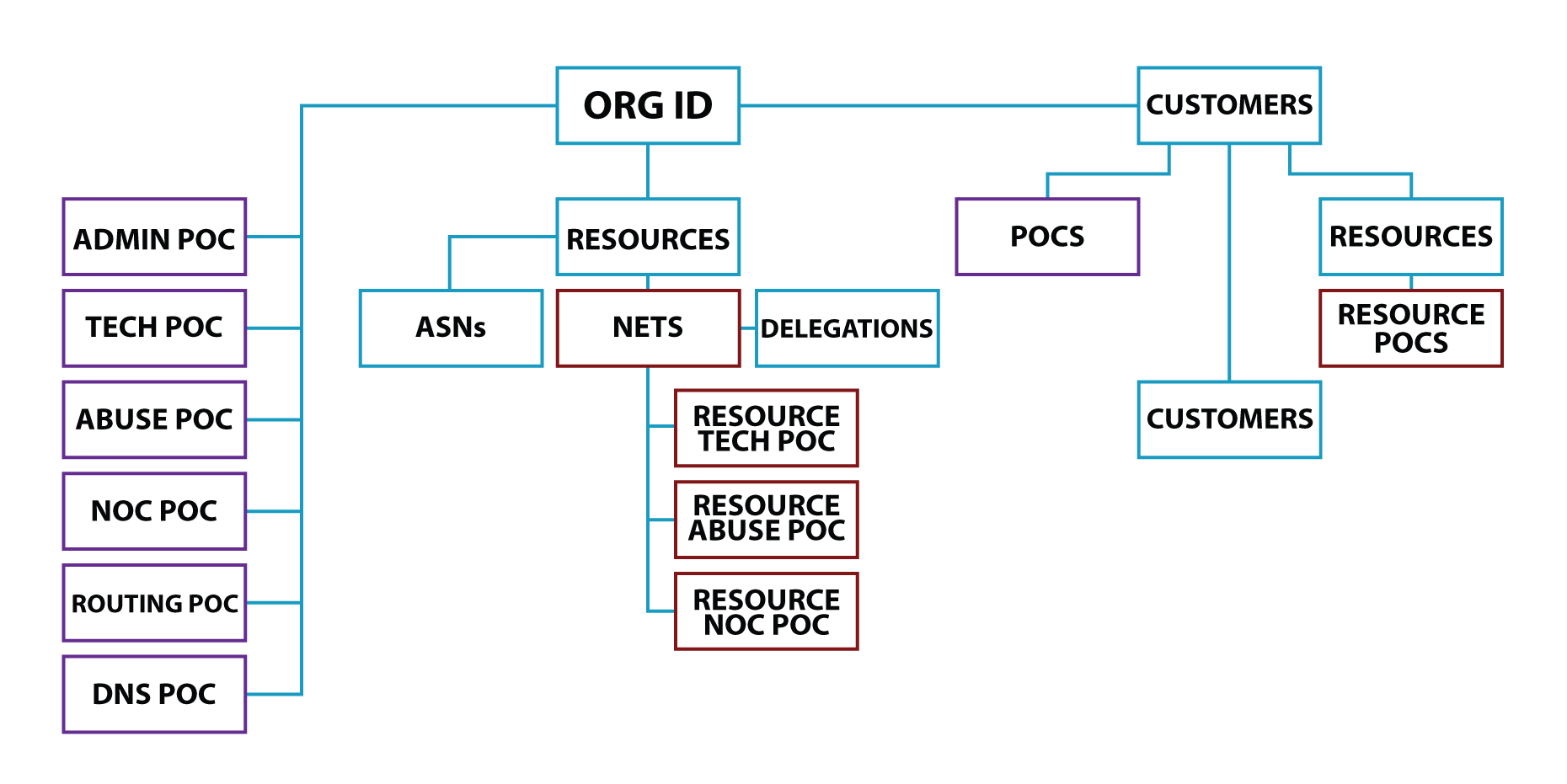
Understanding IPv4 Depletion and ARIN’s Address Request Process
IPv4 Online IPv4
In the ever-expanding digital landscape, the exhaustion of IPv4 addresses has been a critical concern. ARIN, as a key steward in managing IP addresses, experienced the depletion of its IPv4 Free Pool on September 24, 2015. However, the process of IPv4 allocation and requests persists, albeit under specific policy guidelines.
IPv4 Address Depletion: Impact and Current Scenario
The scarcity of available IPv4 addresses is a direct consequence of increased internet usage, proliferation of devices, and the limited pool of 32-bit addresses. ARIN, like other registries, grapples with managing this scarcity while facilitating legitimate address allocations.
Policy-Guided Address Allocations
Since IPv4 depletion, ARIN operates under a set of stringent policies to allocate addresses. These policies outline reserved address blocks for critical infrastructure providers, IPv6 deployment facilitation, and allocations to Internet Service Providers (ISPs).
Policy NRPM 4.4: Micro-Allocations for Critical Infrastructure Providers
Under this policy, critical internet infrastructure entities, such as public exchange points and core DNS service providers, can receive IPv4 micro-allocations, not smaller than a /24. This ensures the continuity of essential internet services.
Policy NRPM 4.10: IPv6 Deployment Facilitation
A contiguous /10 IPv4 block has been dedicated to expediting IPv6 deployment. Allocations from this block necessitate justifications tied to immediate IPv6 deployment needs, ensuring a concerted move toward the new protocol.
ISP Allocations and Policies (NRPM 4.2)
ARIN allocates IP blocks to ISPs, subject to specific policies dictating initial and additional requests. These policies aim to ensure efficient utilization of IPv4 resources by ISPs for reassignment to their customers.
Address Request Process Overview
Initial requests for isps (policy nrpm 4.2.2).
ISP organizations without direct assignments or allocations from ARIN qualify for an initial allocation, typically up to a /22. Organizations without prior allocations automatically qualify for a /24.
Additional Requests and Policy Guidelines (NRPM 4.2.4, NRPM 4.5)
Subsequent requests from ISPs demand demonstrations of efficient utilization, reassignment details, and adherence to specific utilization thresholds as per policies NRPM 4.2.4 and NRPM 4.5.
End User Assignments (Policy NRPM 4.3)
Distinct from ISPs, end users operating networks for internal use are eligible for IP address assignments. Policies outline initial assignment requirements and subsequent request guidelines, focusing on demonstrating efficient usage within specified time frames.
Submitting Requests through ARIN
The process of requesting IP addresses from ARIN involves a structured approach through their online platform, ARIN Online. Users must create an account linked to the organization and submit detailed justifications, network information, and business plans to substantiate their need for addresses.
Request Evaluation and Approval
Upon submission, ARIN Resource Analysts review requests, typically responding within two business days. Successful requests entail the payment of fees and submission of a signed Registration Services Agreement (RSA) within a stipulated timeframe.
Ensuring Compliance and Support
ARIN’s policies are designed to ensure fair and efficient allocation while adhering to utilization and deployment guidelines. Timely compliance and detailed justifications expedite the approval process.
Out-of-Region Use and Policies (NRPM Section 9)
Organizations within ARIN’s service region may utilize ARIN-issued resources outside the region, subject to specific criteria detailed in Section 9 of the Number Resource Policy Manual.
The aforementioned article aims to provide an in-depth understanding of IPv4 depletion, ARIN’s allocation policies, and the meticulous process involved in requesting IPv4 addresses. For further insights or guidance on the submission process, contacting ARIN Registration Services is recommended.
This comprehensive guide intends to illuminate the complexities surrounding IPv4 allocation and empower organizations navigating the evolving landscape of internet addressing.
Should you require additional information or clarifications on any aspect, ARIN’s dedicated support services remain accessible for further assistance and guidance.
Related Posts
The comprehensive guide to acquiring ipv4 addresses in the digital age, understanding ipv4 and ipv6: bridging the past and future of internet protocols, unlocking the possibilities: a comprehensive guide to securely buying ipv4 addresses.

Blog Post View
What is arin.

ARIN is one of the 5 RIRs (Regional Internet Registries) responsible for the management and distribution of the Internet number resources known as IP Addresses (IPv4 and IPv6) and ASNs . ARIN serves the region comprised of the United States, Canada, and many Caribbean and North Atlantic islands. ARIN is a nonprofit organization found in 1997. The primary function of ARIN is the registration of IP addresses and ASNs to ensure global uniqueness. Registration service includes allocation. assignment, and transfer of all Internet number resources. ARIN assigns IPv4, IPv6 and ASN numbers to governments, universities, ISPs , and for-profit organizations.
RIRs including ARIN are components of the IANA , and IANA delegates the allocation services to RIRs. IANA is the record-keeper of IP numbers and provides directory services to the public. ARIN provides directory lookup services for IP number registrations so that anyone can search the directory to determine who owns the IP numbers. The following directory services are offered:
- WhoIS lookup service to allow public to search IP address registrations.
- WhoWas historical directory is available to authorized users for IP address and ASN lookups.
- Reverse DNS delegation: ARIN enables individuals to manage their reverse delegation for IPv4 and IPv6 addresses that are assigned to them.
- Internet Routing Registry (IRR) is a searchable database of public routing policy information for networks in the ARIN region.
ARIN is one of the 5 RIRs responsible for the allocation, assignment, transfer of IPv4, IPv6 , and ASNs. The IP numbers must be unique globally and must be allocated fairly across the regions. IANA is the governing body that delegates the IP assignment duties to RIRs. In addition to IP number allocation, ARIN also provides directory lookup services to the public for those IP resources assigned to its region.
Share this post
Comments (0), leave a comment.
All comments are moderated. Spammy and bot submitted comments are deleted. Please submit the comments that are helpful to others, and we'll approve your comments. A comment that includes outbound link will only be approved if the content is relevant to the topic, and has some value to our readers.
Reply Comment
Do not sell or share my personal information..
At IPLocation.net, we prioritize the privacy and security of our visitors. We want you to feel confident and comfortable when browsing our website. That's why we want to assure you that we do not sell or share any personal information collected from our website. Your trust is important to us. Whether you're browsing our site for information, or engaging with our content, rest assured that any data you provide remains strictly confidential. We adhere to stringent privacy policies and comply with all relevant regulations to safeguard your information. Your privacy matters, and we are committed to maintaining the highest standards of data protection. If you have any questions or concerns regarding our privacy practices, please don't hesitate to reach out to us.
© 2006 - 2024, Brand Media, Inc. All rights reserved.

IPv4 Broker | Buy, Sell, Lease
What is ARIN?

Table of Contents
ARIN , or the American Registry for Internet Numbers , is a key organization responsible for managing and allocating IP addresses in North America. As one of the five Regional Internet Registries (RIRs) globally, ARIN ensures that IP addresses and Autonomous System Numbers (ASNs) are distributed efficiently and fairly within its jurisdiction. This article provides an in-depth look into ARIN, its history, functions, and the essential services it offers to the internet community.
A Brief History of ARIN
Established in 1997, ARIN was formed in response to the growing need for an organized entity to oversee the allocation and registration of IP addresses in North America. Prior to ARIN’s formation, the task of IP address allocation was managed by various smaller entities without a centralized system. Recognizing the need for a more structured approach, especially with the increasing demand for internet resources, ARIN was founded to bring order, transparency, and efficiency to the process.
Over the years, ARIN has adapted to the changing dynamics of the internet, addressing challenges such as the transition from IPv4 to IPv6 and the increasing demand for IP resources due to the proliferation of internet-connected devices.
ARIN’s Role as a Regional Internet Registry
Regional Internet Registries (RIRs) are organizations tasked with the responsibility of managing, allocating, and registering IP addresses within specific geographical regions. ARIN, in particular, serves the United States, Canada, and several parts of the Caribbean.
Key responsibilities of ARIN as an RIR include:
IP Address Allocation
ARIN manages the distribution of both IPv4 and IPv6 addresses within its region. This involves assessing requests for IP addresses, ensuring that they are allocated based on need and availability, and maintaining a public registry of allocations.
Autonomous System Numbers (ASNs) Allocation
ASNs are essential for routing internet traffic between ISPs. ARIN oversees the allocation and registration of these numbers, ensuring that each ASN is unique and serves its intended purpose.
Policy Development
ARIN plays a crucial role in developing policies related to internet number resources. These policies are formulated with input from the internet community and are designed to ensure fair and efficient distribution of resources.
Registry Maintenance
ARIN maintains a detailed and up-to-date registry of all IP address and ASN allocations within its jurisdiction. This registry is publicly accessible and ensures transparency in resource allocation.
By fulfilling these roles, ARIN ensures that the internet remains functional, stable, and accessible within its region, catering to the needs of ISPs, businesses, and individual users alike.
IP Registration Services
One of the core functions of ARIN is to provide IP registration services. This involves a systematic approach to ensure that every IP address, whether IPv4 or IPv6, is uniquely assigned and documented. Here’s a breakdown of the services:
IPv4 Registration
Despite the exhaustion of IPv4 addresses, ARIN continues to manage the existing pool, handling transfers, returns, and reallocations. Organizations can request IPv4 addresses based on specific needs, and ARIN evaluates these requests against established policies.
IPv6 Registration
With the depletion of IPv4 addresses , the transition to IPv6 has become imperative. ARIN facilitates the allocation and registration of IPv6 addresses, ensuring that organizations have the resources they need for future growth.
Whois Directory Service
ARIN maintains a public directory, known as the Whois service, which provides information about IP address allocations and registrations. This tool is essential for transparency and for resolving technical queries or issues related to IP addresses.
Reverse DNS
ARIN offers a reverse DNS service, allowing for the resolution of IP addresses back to domain names. This service is crucial for various network operations and security functions.
Transfer Services
As the demand for IPv4 addresses continues, ARIN provides a structured process for organizations to transfer IP resources . This ensures that transfers are conducted transparently and in compliance with established policies.
ARIN’s Services Overview
Beyond its primary role in IP registration, ARIN offers a suite of services designed to support the broader internet community within its jurisdiction. These services ensure that the internet remains stable, secure, and resilient. Here’s an overview:
Resource Certification (RPKI)
ARIN provides a Resource Public Key Infrastructure (RPKI) service, which allows resource holders to certify their IP address and ASN resources. This certification adds a layer of security, helping to prevent route hijacking and other malicious activities.
Billing and Fee Management
ARIN offers a streamlined system for members and non-members to manage their fees associated with IP resources, ensuring transparency and ease of payment.
Training and Educational Resources
Recognizing the importance of an informed community, ARIN provides various training programs, webinars, and educational resources. These cover topics ranging from IP allocation processes to best practices in internet resource management.
Public Policy Development
ARIN has a structured process for the development of public policies related to internet number resources. This involves community input, discussions, and a transparent decision-making process to ensure policies are fair and relevant.
Online Tools and Platforms
ARIN offers a range of online tools for users, including ARIN Online, a portal for managing IP resources, and NetHandle, a tool for querying information about network-related entities.
Outreach and Engagement
While not a service in the traditional sense, ARIN actively engages with its community through events, forums, and feedback mechanisms. This ensures that ARIN remains responsive to the needs and concerns of its stakeholders.
The Significance of Internet Numbers
In the vast digital expanse of the internet, every device, website, and online service requires a unique identifier. These identifiers, known as internet numbers, encompass IP addresses and Autonomous System Numbers (ASNs). Their role is paramount in ensuring seamless online communication and connectivity.
IP addresses, whether they’re IPv4 or the newer IPv6, act as unique digital addresses for devices connected to the internet. Think of them as the street addresses of the digital world. They ensure that data packets sent from one device reach their intended destination without any hitches. With the proliferation of internet-connected devices, the demand for IP addresses has surged, making their efficient allocation and management crucial.
On the other hand, ASNs play a pivotal role in routing internet traffic. Assigned to networks that use Border Gateway Protocol (BGP) for routing, ASNs ensure that data packets traverse the vast networks of the internet in the most efficient manner. They’re instrumental in determining the best path for data, especially when it has to hop across multiple networks to reach its destination.
Together, IP addresses and ASNs form the backbone of the internet. They ensure its stability, reliability, and efficiency. Without a structured system for their allocation and management, as provided by organizations like ARIN, the internet as we know it would be riddled with conflicts, inefficiencies, and disruptions.
ARIN’s Interaction with ISPs
Internet Service Providers (ISPs) are the gateways through which individuals and businesses access the internet. They play a critical role in ensuring that users can browse websites, send emails, stream content, and more. Given the centrality of ISPs in the internet ecosystem, their relationship with ARIN is of paramount importance.
ISPs rely on ARIN for a steady supply of IP addresses. As the demand for internet connectivity grows, so does the need for more IP addresses. ARIN ensures that ISPs receive the necessary IP resources, both IPv4 and IPv6, to cater to their expanding user base. This allocation is done based on established policies, ensuring fairness and transparency.
Beyond IP allocation, ISPs also turn to ARIN for Autonomous System Numbers (ASNs). These numbers are crucial for larger ISPs that manage vast networks and need to route traffic efficiently across the internet. ASNs allow them to participate in global routing, ensuring that their users’ data reaches its destination swiftly and without disruptions.
Moreover, ARIN provides ISPs with tools and resources to manage their IP allocations. Platforms like ARIN Online facilitate easy management, updates, and transfers of IP resources. Additionally, training programs and webinars offered by ARIN equip ISPs with the knowledge to navigate the complexities of internet resource management.
In essence, ARIN and ISPs share a symbiotic relationship. While ARIN provides ISPs with the resources they need to operate, ISPs, in turn, ensure that the internet remains accessible and efficient for users in North America.
In the complex infrastructure of the internet, ARIN plays a critical role in managing and allocating internet numbers in North America. Its responsibilities, ranging from the allocation of IP addresses and ASNs to policy development and registry maintenance, are crucial for the smooth operation of the internet.
ARIN’s commitment to transparency and fairness in the distribution of resources, coupled with its extensive range of services, ensures that the needs of ISPs, businesses, and individual users are met. Its active engagement with the internet community contributes to the development of policies that are relevant and fair.
As the internet continues to evolve, the role of organizations like ARIN becomes increasingly important. They ensure that the growth of the internet is managed in a way that maintains stability, accessibility, and efficiency. In conclusion, ARIN’s contributions to the internet landscape in North America are significant and indispensable.

Key Takeaways
What does ARIN stand for and what is its primary function?
ARIN stands for the American Registry for Internet Numbers. It is responsible for managing and allocating IP addresses in North America.
How did ARIN come into existence?
Established in 1997, ARIN was formed to bring order, transparency, and efficiency to the allocation and registration of IP addresses in North America, which was previously managed by various smaller entities without a centralized system.
What regions does ARIN serve?
ARIN serves the United States, Canada, and several parts of the Caribbean.
What are the key responsibilities of ARIN?
ARIN’s primary responsibilities include IP address allocation (both IPv4 and IPv6), Autonomous System Numbers (ASNs) allocation, policy development, and maintenance of a public registry of allocations.
How does ARIN handle IP registration?
ARIN provides systematic IP registration services, ensuring that every IP address, whether IPv4 or IPv6, is uniquely assigned and documented. This includes managing the existing IPv4 pool, facilitating the allocation and registration of IPv6 addresses, maintaining the Whois directory service, offering reverse DNS service, and providing a structured process for IP resource transfers.
What additional services does ARIN offer?
Beyond IP registration, ARIN offers services like Resource Public Key Infrastructure (RPKI) for security, billing and fee management, training and educational resources, public policy development, and various online tools and platforms.
Why are internet numbers significant?
Internet numbers, including IP addresses and ASNs, are paramount for ensuring seamless online communication and connectivity. They act as unique digital addresses for devices connected to the internet and play a crucial role in routing internet traffic efficiently.
How does ARIN interact with Internet Service Providers (ISPs)?
ISPs rely on ARIN for a steady supply of IP addresses. ARIN ensures that ISPs receive the necessary IP resources to cater to their expanding user base, based on established policies.
How does ARIN contribute to the stability and efficiency of the internet?
ARIN ensures the efficient allocation and management of IP addresses and ASNs, which form the backbone of the internet. Without a structured system for their allocation, the internet would face conflicts, inefficiencies, and disruptions.
What is ARIN IPv4 Address Waitlist?
The ARIN IPv4 Address Waitlist is a mechanism set up by ARIN (American Registry for Internet Numbers) to manage and allocate the remaining IPv4 addresses to requesting organizations once its primary reserve was depleted. Organizations are placed in a queue and are allocated addresses based on availability and certain criteria.
Related Posts

What is IANA?

What are Regional Internet Registries (RIRs)?

What is APNIC?

What is RIPE?
IPv6 Global Unicast Address Assignments
- Settings Profile and security information
- Introduction to ARIN's Database
On this page
Scroll for more
Introduction
Perhaps ARIN’s best-known function within the Internet community is the Whois directory service. Whois is driven by a large relational database with six classes of objects, all of which interconnect to create meaningful, searchable information.

The six classes of objects are:
- Organization Identifiers (Org ID): When you think of an Org ID you can think of this as a container that holds all the other classes of objects and identifies your organization.
- Points of Contact (POC): This object identifies people or a role (group of people) within your organization that will be responsible for the day to day management of your Internet number resources.
- Autonomous System Numbers (ASNs): These represent an Autonomous System (AS) which are represented by networks that adhere to a single routing policy.
- Networks (NETs): These are IPv4 or IPv6 address blocks listed within ARIN Whois.
- Customers: These include the POCs and Resources for organizations that are associated with ARIN through a provider organization such as an Internet Service Provider. They do not have a direct relationship with ARIN, but are listed in ARIN’s Whois.
- Delegations: These are entries necessary for Reverse DNS.
Organization Identifier (Org ID) Records
An Org ID is a unique identifier representing an organization that is registered in the ARIN database. This identifier shows that entity’s name, its physical address, and any Points of Contact (POCs) that have authority over it. In addition, all Internet number resources directly assigned or allocated from ARIN, as well as any downstream resources, must be registered to the appropriate Org ID. This means you must establish an Org ID before requesting resources. An entity may maintain multiple Org IDs for different accounts, or it may consolidate all of its resources under a single Org ID. For each Org ID, there must be at least one Admin, Tech, and Abuse POC with authority over it. NOC POCs are optional.
Point of Contact (POC) Records
Point of Contact (POC) records are standalone objects that define a person, their mailing address, and their contact information, and states any organizations or resources that the point of contact has authority over. POCs can also define role accounts like noc@, abuse@, etc. An individual’s area of responsibility is defined by how their POC is connected to an organization or the resources of an organization.
Note: POCs tied to an organization are automatically inherited by any resource that organization has authority over. There is no need to create multiple POCs to accomplish this or to list the same POC on both an Organization and its resources.
Admin POC (Mandatory)
The Administrative (Admin) POC provides oversight for an Org ID and all resources it has authority over, and may be an individual or a role account. An Admin POC can only be connected directly to an Org ID, and there can be only one per Org ID. The Admin POC is permitted to update the Org ID, manage, update, request resources, and request transfers as well as manage reverse delegations.
The Technical POC (Tech POC) provides the day-to-day management of a resource, either through the organization to which that resource belongs, or its authority over the resource directly.
Organizational Tech POC (Mandatory)
The Organizational Tech POC is permitted to update the Org ID, manage, update, request resources, and transfer resources as well as manage reverse delegations, and may be an individual or a role account.
Resource Tech POC (Optional)
A Resource Tech POC may have authority over a resource, such as an allocation of IP address space or an Autonomous System Number (ASN), and may be an individual or a role account. This authority may be established by the Admin, Tech, or Resource Tech POC for that resource.
The Resource Tech can change the attributes of a resource, such as the resource name and the public comments displayed in Whois, and can associate Abuse, NOC, or other Tech POCs with a resource. Depending on the type of resource, the Resource Tech can specify nameservers or delegation signer (DS) records. Specifying a Resource Tech POC does not prevent the Organizational Tech POC from also making changes.
Organizational Abuse POC (Mandatory)
The Organizational Abuse POC acts as a contact for the reporting and resolution of network abuse issues, and may be an individual or role account. Multiple Abuse POCs may be specified per organization. This type of POC is not permitted to make any database changes.
Resource Abuse POC (Optional)
The Resource Abuse POC acts as a contact for the reporting and resolution of network abuse issues, and may be an individual or role account. Multiple Abuse POCs may be specified per resource. This type of POC is not permitted to make any database changes.
Organizational NOC POC (Optional)
The Network Operation Center (NOC) POC serves as a contact for network operation issues, and may be an individual or a role account. Multiple NOC POCs may be specified per organization. This type of POC is not permitted to make any database changes, and is optional.
Resource NOC POC (Optional)
The Network Operation Center (NOC) POC serves as a contact for network operation issues, and may be an individual or a role account. Multiple NOC POCs may be specified per resource. This type of POC is not permitted to make any database changes, and is optional.
Routing POC (Optional)
The Routing POC is responsible for Internet Routing Registry and Resource Private Key Infrastructure (RPKI) certification information for the organization.
Domain Name System (DNS) POC (Optional)
The DNS POC is responsible for reverse DNS and secure DNS information for the organization.
Autonomous System Number (ASN) Records
Autonomous System Numbers, or ASNs, represent Autonomous Systems: networks or connected groups of networks that adhere to a single unique routing policy that differs from the routing policies of their border peers. An ASN record, much like a NET, displays the specific Autonomous System Number and the ORG with authority over it.
Network Records
Network records define a range of IPv4 or IPv6 addresses and show the organizations and POCs with authority over them. There are three main types of resource records within the database:
- Direct Allocation : IP address space allocated directly from ARIN to an organization, either for its own use or so that it can reallocate or reassign that space to downstream customers.
- Reallocation : IP address space allocated from an organization (the upstream) to a downstream customer. The downstream customer may reallocate or reassign that space further.
- subdelegate the addresses to their own customers maintain their own in-addr.arpa delegation
- display their own point of contact (POC) information
- Simple Reassignment : Address space assigned to a customer that does NOT require the above capabilities.
Customers are organizations associated with ARIN through a provider organization. Customers are searchable within Whois just as ORGs are, but may only have authority over a single network registration that is a simple reassignment.
Delegation Records
Delegations are entries that relate IP addresses to domain names using the Domain Name System (DNS) of the Internet. Delegations contain the information necessary for Reverse DNS, including the associated nameservers, and DNS Delegation Signer (DS Record) information. Unlike the other objects, delegations are not given a handle. They are searched for within Whois using a delegation name, like 0.192.in-addr.arpa.
ARIN Account Management
- Point of Contact (POC) Records & Organization Identifiers (Org IDs)
- New to ARIN
- ARIN Acronym Guide
- Using Whois
- Requesting IP Addresses or ASNs
Registration Services Help Desk 7:00 AM to 7:00 PM ET Phone: +1.703.227.0660 Fax: +1.703.997.8844
Tips for Calling the Help Desk
- Settings Profile and security information
Search ARIN Site or Whois
- Site Search

IMAGES
VIDEO
COMMENTS
Allocations vs. Assignments. When ARIN issues a block of IP addresses to a customer planning to issue pieces of that block to its own customers, this is known as an direct allocation or allocation. When an ARIN customer issues a piece of their allocation to a customer of their own, ...
Make sure you meet the requirements for obtaining a /24 of IPv4 address space. With the exhaustion of IPv4, ARIN can tell you to get a smaller block from an upstream provider unless you qualify as an ISP and don't already have an initial assignment, as a /24 is the smallest allocation they will give out - and typically only to ISP's.
Have a previously-justified IPv4 end user assignment from ARIN or one of its predecessor registries; ... Allocation sizes should align with ARIN minimum allocation sizes, unless a smaller or larger allocation size is thoroughly justified for a particular experiment. ARIN reserves the right to modify or withdraw resources if they are being used ...
With the exception of M&A transfers under section 8.2, the source entity must not have received a transfer, allocation, or assignment from ARIN for the past 12 months. This requirement may be waived by ARIN for transfers made in connection with a renumbering exercise designed to more efficiently utilize number resources under section 8.5.5.1.
ISP organizations without direct assignments or allocations from ARIN qualify for an initial allocation, typically up to a /22. Organizations without prior allocations automatically qualify for a /24. Additional Requests and Policy Guidelines (NRPM 4.2.4, NRPM 4.5)
ARIN: Canada, USA, and some Caribbean Islands: LACNIC: Latin America and some Caribbean Islands: RIPE NCC: Europe, the Middle East, and Central Asia: ... When an RIR requires more IP addresses for allocation or assignment within its region, we make an additional allocation to the RIR. We do not make allocations directly to ISPs or end users ...
Address Allocation Model. Currently, IANA allocates address blocks to the regional registries. The registries in turn assign address blocks to service providers. ... /12 to ARIN for assignment. This aligns with the top layer of the model. ARIN subsequently has assigned 2600::/29 block to Sprint, 2600:300::/24 to AT&T Mobility, 2600:7000::/24 to ...
ARIN ASN Allocations. Allocations of autonomous system numbers are made to regional Internet registries according to their needs, based on allocation rates they publish. Specifically, RIRs are eligible for further allocations if their available address space is 80% allocated, or the available pool does not satisfy two months of need based on ...
[arin-ppml] Revised - Draft Policy ARIN-2022-12: Direct Assignment Language Update Douglas Camin doug at dougcamin.com Thu Feb 1 15:23:47 EST 2024. ... feedback was received about the revisions in this draft policy to the definitions of "Allocation" and "Assignment." Taking the feedback into account, we revised this update to retain the ...
To quote Introduction to ARIN's Database: Direct Assignment: IP address space assigned directly from ARIN to an organization for its own exclusive use. So this IP space cannot be used to do sub allocations to downstream customers, that's what Direct Allocation is for. Share. Improve this answer.
If so, then the allocation rules above (which allocate on natural nibble boundaries) are very generous. A nibble is four bits (i.e. one hexadecimal character) and in this case a natural subnet ...
This document describes policies for the allocation and assignment of globally unique Internet Protocol version 6 (IPv6) address space. [ RFC 4291] designates 2000::/3 to be global unicast address space that the Internet Assigned Numbers Authority (IANA) may allocate to the RIRs. In accordance with [ RFC 4291 ], IANA allocated initial ranges of ...
ARIN (or its predecessor registries) have performed allocation and assignment of IPv4 address blocks from specific address blocks assigned by IANA. The list of IPv4 address blocks is available here on the IANA website. ARIN's free pool of IPv4 address space was depleted on 24 September 2015. As a result, we are no longer fulfilling requests ...
ARIN is a nonprofit organization found in 1997. The primary function of ARIN is the registration of IP addresses and ASNs to ensure global uniqueness. Registration service includes allocation. assignment, and transfer of all Internet number resources. ARIN assigns IPv4, IPv6 and ASN numbers to governments, universities, ISPs, and for-profit ...
The American Registry for Internet Numbers ( ARIN) is the regional Internet registry for the United States, Canada, and many Caribbean and North Atlantic islands. ARIN manages the distribution of Internet number resources, including IPv4 and IPv6 address space and AS numbers. ARIN opened for business on December 22, 1997 [1] after incorporating ...
Some large / 8 blocks of IPv4 addresses, the former Class A network blocks, are assigned in whole to single organizations or related groups of organizations, either by the Internet Corporation for Assigned Names and Numbers (ICANN), through the Internet Assigned Numbers Authority (IANA), or a regional Internet registry.. Each / 8 block contains 256 3 = 2 24 = 16,777,216 addresses, which covers ...
Furthermore, ARIN provides various technical services, including technical training and education within the internet community. ARIN registration services. The IP registration services from the American registry include the allocation, assignment and transfer of three types of internet number resources: IPv4 addresses; IPv6 addresses; ASN numbers
Key responsibilities of ARIN as an RIR include: IP Address Allocation. ARIN manages the distribution of both IPv4 and IPv6 addresses within its region. This involves assessing requests for IP addresses, ensuring that they are allocated based on need and availability, and maintaining a public registry of allocations.
FROM: "All ISP organizations without direct assignments or allocations from ARIN qualify for an initial allocation of up to a /22, subject to ARIN's minimum allocation size. All ISP organizations without direct allocations, direct assignments, re-allocations or reassignments automatically qualify for a /24. These organizations are exempt from
ARIN - Switching an IP block to Direct Allocation. Hey All, Due to internal politics our new parent company is going to start using a /23 of our /20 (All ARIN space, both in the ARIN region). Right now our block is direct assignment, and if at all possible I'd like to keep the /20 whole. I spoke with them and they said we could switch it to a ...
The assignable Global Unicast Address space is defined in [ RFC3513] as the address block. defined by the prefix 2000::/3. [ RFC3513] was later obsoleted by [ RFC4291 ]. All address. space in this block not listed in the table below is reserved by IANA for future. allocation.
An Org ID is a unique identifier representing an organization that is registered in the ARIN database. This identifier shows that entity's name, its physical address, and any Points of Contact (POCs) that have authority over it. In addition, all Internet number resources directly assigned or allocated from ARIN, as well as any downstream ...
Financial Services: +1.703.227.9886. Main: +1.703.227.9840. Visit ARIN on Facebook. Visit ARIN on X. Visit ARIN on LinkedIn. Visit ARIN on YouTube. Media. ARIN is a nonprofit, member-based organization that administers IP addresses & ASNs in support of the operation and growth of the Internet.